When Bryan Pickering came to the March 16 meeting of the Elder Council at Bethlehem Baptist Church (BBC), he thought the board was going to decide the scope of an investigation into allegations concerning Andy Naselli.
Naselli, a BBC elder and professor at Bethlehem College and Seminary (BCS), had been accused by 12 current and former BCS students of spiritual abuse. He also had been accused by several BBC members of disparaging and sinning against them and others in the congregation.
At a meeting just five days earlier, Pickering, a former BBC elder and counseling pastor, said he had met with the elders of his campus—the Downtown campus—including Jason Meyer, the successor of BBC Pastor Emeritus John Piper. When presented with the evidence against Naselli, Pickering said some of the elders were heartbroken.
One elder, Kenny Stokes, stated that the matter needed to be investigated, Pickering said. Another elder, and the Downtown pastor for worship and ministry development, Chuck Steddom, was in tears, Pickering said. He added that Steddom read from First Corinthians 13 and stated that because Naselli lacked love, he was not qualified to be an elder.
The consensus at the end of the meeting was that the allegations needed to be investigated, Pickering said. He added that Kurt Elting-Ballard, chairman of the full BBC elder board, suggested outside the meeting that a subcommittee of elders not related to BCS be appointed to do the investigation.
Your tax-deductible gift helps our journalists report the truth and hold Christian leaders and organizations accountable. Give a gift of $30 or more to The Roys Report this month, and you will receive a copy of “Hurt and Healed by the Church” by Ryan George. To donate, click here.
Yet on March 16, when the entire BBC Elder Council met, it did not commission an investigation. The council instead dismissed all the grievances brought against Naselli, a stunning about-face that Pickering said left him and his colleagues— Pastor Meyer and former neighborhood pastor Ming-Jinn Tong—reeling.

Pickering said he doesn’t know exactly what happened in the days and hours leading up to the meeting. But he said the outcome of the March 16 meeting seemed to have been decided prior to the elders gathering. He also alleged that the elders’ actions showed they were more interested in protecting BBC’s image than protecting its flock.
Yet the image of BBC—a church known internationally because of John Piper’s three decades of service there—is experiencing perhaps its worst public relations crisis since its inception.
Meyer, Tong, and Pickering have resigned from BBC, as have about 10% of BBC’s members. And in addition to reports in Christian media, the Star Tribune—the largest newspaper in Minnesota—ran a story on Sunday about the pastors’ departure and accusations of a “toxic church culture.”
Meanwhile, BBC has been holding numerous meetings on multiple campuses to answer questions from its congregation. But the questions keep coming. And a main question remains: What were the specific allegations against Andy Naselli—and did church leaders properly investigate them?
The March 16 closed-door elder meeting
At the March 16 meeting, the elders first considered grievances against Naselli brought by BBC members other than Pickering, and voted overwhelmingly to dismiss the grievances, Pickering said.
The only ones who voted against dismissing the grievances were Pickering, Meyer, Tong, and Darin Brink, a non-staff Downtown elder. A few elders abstained from voting. But elders like Stokes and Steddom, who had been so vocal about holding Naselli accountable just days earlier, remained silent, Pickering said.
The Roys Report reached out to Stokes and Steddom for comment, but they did not respond.

The elders then took up Pickering’s grievance against Naselli, charging that Naselli had “a pattern of controlling and egregious sin against God and people,” based largely on the testimonies of 12 former and current BCS students.
The elders asked to see Pickering’s evidence supporting the charges. But Pickering said he had brought more than 350 pages of documentation to the meeting, which couldn’t possibly be examined in one night. Plus, though Naselli was present at the meeting, the students alleging wrongdoing, were not. Pickering added that the other BBC members bringing grievances against Naselli were not permitted to be present either.
“When I was being told, ‘Bring out all the students’ stories right now,’ after what I had just seen, I said, ‘No, I’m not going to do it. I’m not giving you access to all their stories because I can see you’ve already tilted the ground and are causing this to go to a predetermined outcome,’” Pickering said.
Pickering added that Ken Currie, BBC pastor for strategic implementation, urged Pickering to present the evidence, while simultaneously claiming he had seen it all and there was nothing to see.
The elders then voted to dismiss Pickering’s grievance, with only Meyer, Tong, Brink, and Pickering voting against the motion.
The Roys Report reached out to Chairman Elting-Ballard and other BBC elders for comment about the proceedings involving Naselli. Elting-Ballard responded in an email stating that the elders are focusing “on the needs of our flock” and had no additional comment.
The Roys Report also reached out to Naselli, but he did not respond.
Yet as reported previously, Pickering says Tong called the March 16 meeting “unethical.” And in Pastor Meyer’s July letter of resignation, Meyer wrote: “I continue to maintain that accusations should not be immediately embraced or dismissed. They should be sifted and vetted to determine what is true and what is not. . . . I thought others agreed with me as we talked about taking that approach. But the vote said the opposite.”
The BBC members who submitted grievances against Naselli have shared their first-hand accounts with The Roys Report, as well as recordings of meetings and emails between the parties involved. They say not only do Naselli’s actions show a pattern of sin by Naselli; they also show a pattern of elders excusing it.
That evidence will be covered in a follow-up article.
The Roys Report also has obtained more information about the complaints submitted by the 12 current and former BCS students concerning Naselli, and the way both BCS and BBC handled those complaints. As happened at BBC, the complaints did not result in an investigation by an independent party when submitted to BCS. Instead, BCS conducted an internal investigation, spearheaded by an administrator who reportedly had buried earlier concerns.
The “bulldog who kept everyone in line”
According to Benjamin Lantzer, a 2020 BCS graduate who’s now a senior pastor at a small church in Indiana, Andy Naselli was the “bulldog who kept everyone in line” at Bethlehem College and Seminary.
Lantzer was in a “cohort” at BCS, which had Naselli as a professor. (A cohort is a group of 15-20 seminarians who took classes together for duration of their four-year program,) Lantzer also was one of 12 BCS students who submitted statements to BCS administrators in the summer 2020, accusing Naselli of spiritual abuse.
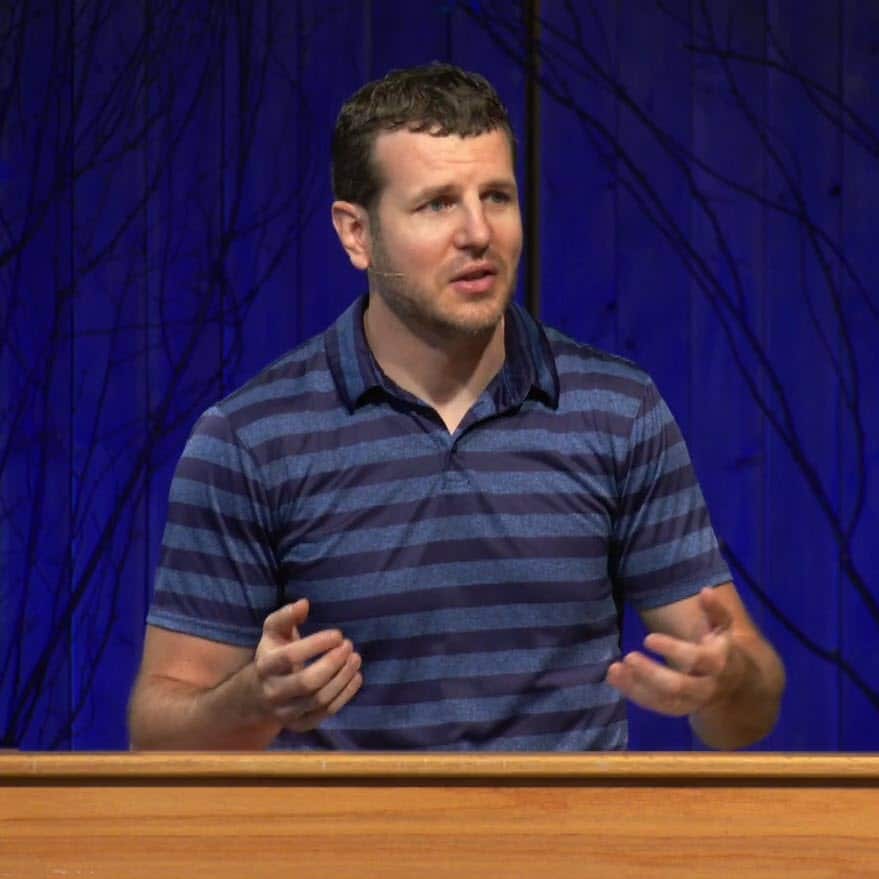
Lantzer said one time, he went to Naselli after class and brought up a counter-point to something Naselli had said in class. Lanzter said Naselli responded that Lantzer shouldn’t “go there,” and if he did, Naselli would “destroy” him.
Another time, Lantzer said an introverted student commented on something Naselli said in class. After saying, “Shhh,” several times to the student without effect, Naselli told the student to “Shut up,” Lantzer said.
These kinds of “disproportionate” and “disrespectful” responses were common from Naselli, Lantzer said. However, one incident stands out.
In May 2020, the entire cohort joined a Zoom call, where each student was supposed to present their capstone papers.
Lantzer said a couple of his classmates presented papers arguing for infant baptism—a controversial position because both Naselli and BCS oppose infant baptism. According to Lantzer, Naselli “roasted” the students and told them he was concerned for their souls.
Lantzer’s paper was controversial, too, because it argued that that Scripture permits women to serve as deacons, elders, and preachers, which Naselli and BCS also oppose.
Lantzer said Naselli had approved the topic of his paper. But when Lantzer began presenting his paper on the call, Naselli confronted Lantzer for his view and asked Lantzer why he had adopted it.
Lantzer said he told Naselli that one factor was seeing the way women are treated at the seminary.
Another student on the Zoom call who spoke with The Roys Report was Daniel Kleven, former director of admissions at BCS. According to Kleven, Lantzer also expressed that he didn’t trust Naselli.
At that point, Naselli demanded to talk with Lantzer about issues Lantzer had with him in front of the class, both Kleven and Lantzer said. They said Lantzer repeatedly asked to speak with Naselli in private about the issues and to continue his presentation, but Naselli insisted.
After multiple attempts to evade Naselli’s demands, Lantzer said he “let loose” and confronted Naselli for the “sexist” and inappropriate ways he had seen Naselli treat others.
Lantzer said the rest of the call was “a blur,” but he distinctly remembers Naselli refusing to take any blame for the altercation and telling Lantzer that his comments were “sinful to the core.”
Lantzer said the class then took a break, and when they returned, Naselli’s wife was on the call, telling the class that Naselli was a good husband and father and treated her well.
Naselli did not respond to repeated requests for comment about this incident and others.
Tip of the iceberg
According to Pickering, who counseled nearly all the students who submitted statements concerning Naselli’s alleged abuse, Lantzer’s experiences were the tip of the iceberg.
The accusations included “being belittled in the classroom in front of fellow classmates, name calling—significant name calling, like being called ‘a damn heretic’—when debating particular positions,” Pickering said. He added that students claimed Naselli would pound his fist on the desk in frustration, especially if he felt he was being disrespected. Students reported a “hyper-competitive environment” where “mocking one another’s positions . . . was encouraged,” Pickering added.
Pickering said he couldn’t tell specifics of other students’ allegations because of confidentiality concerns. But he said the allegations involved students in multiple classes over several years.
Some of these students said they reported Naselli’s concerning behavior to Dean Brian Tabb, but Tabb did nothing, Pickering said.
The Roys Report reached out to Tabb for comment, but he didn’t respond.

Pickering said the first BCS student came to him with concerns about Naselli in February 2020, wondering if what he described qualified as spiritual abuse. When Pickering told him that it may be abuse, the student said he knew of about a dozen other students with similar stories. Pickering said that over the next few months, many of those students, and others, told Pickering their stories.
Because BCS is affiliated with BBC and Naselli is a BBC elder, Pickering said Jason Meyer urged BBC Elder Chair Kurt Elting-Ballard to determine a process for investigating the allegations. Yet Pickering said Tabb demanded that the matter be delegated solely to BCS, and that Tabb be allowed to lead an internal investigation, which Elting-Ballard allowed.
The BCS internal investigation concluded in August 2020 after Tabb interviewed three of the 12 students who submitted statements, Pickering said. Many students submitted their testimonies anonymously, but more were coming forward to speak with Tabb when the investigation ended, Pickering added.
In an email to Pickering and three other BBC elders, Tabb stated that the investigation did “not find sufficient evidence to corroborate the charge that Naselli has been ‘spiritually abusive’ . . . or has intentionally sinned against his students.” As a result, the administration expressed its “full support for Naselli.”
The email also appeared to confront Pickering for counseling the students and encouraging them to report to BCS administrators.
“Andy knows that these students sought out a Bethlehem pastor (though he does not know whom) to share accusations and concerns about him,” Tabb wrote. “I recommend that Bryan Pickering contact Andy directly and offer to meet with him to discuss his role in fielding these concerns from students and alumni.”
At the end of 2020, Pickering resigned from BCS where he had taught counseling. In his resignation letter, he stated: “My perspective of student complaints that surfaced last year is that they are egregious. . . . (T)hey were actions done repeatedly over time to students by a professor-elder who is charged with teaching them how to interpret and apply the Scriptures and teaching them how to shepherd others.”
Pickering added, “I do not believe this was handled well—and many of the students deeply regret asking for help. This grieves my heart on so many levels. It looks like we have valued the institution and its reputation over caring well for ones we’ve wounded.”
The allegations concerning Naselli might have ended there had it not been for what happened soon afterwards.
At a congregational meeting on January 31, 2021, Naselli stated that he would resign as an elder if members passed a motion distancing the church from comments made by BCS President Joe Rigney and controversial pastor, Doug Wilson. Then, Naselli said and wrote things to the elder council, all BCS staff, and church members, discrediting the church members who brought the motion—Steven and Janette Takata—according to the Takatas and witnesses who spoke with The Roys Report. When confronted for his actions, Naselli offered what the offended parties considered partial apologies—all with support of the elder board.
Those events will be covered in the next article on this developing story.




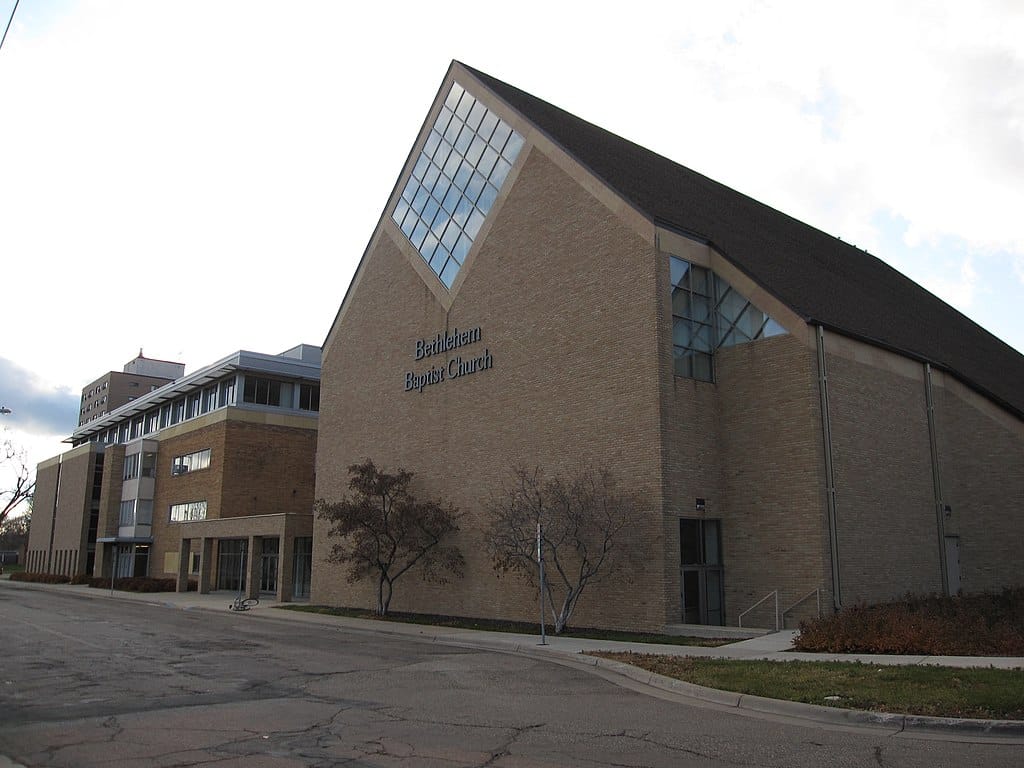
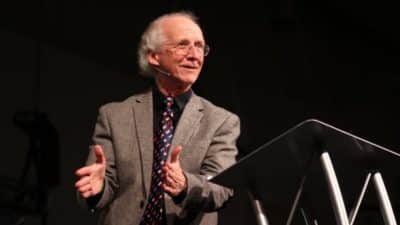
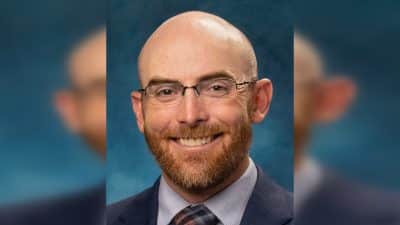
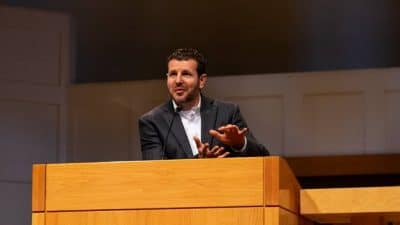




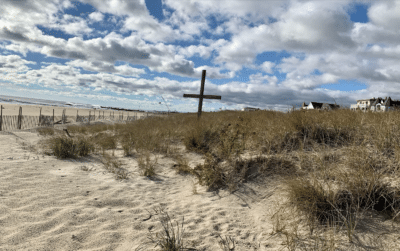







26 Responses
What is the reason people back down from a bully in the Body of Christ ?? This type of bully can’t physically or emotionally harm like a bully in the military could. Are we just a bunch of cowardly sheep who are afraid to disagree with those who are supposed to be leading us. Using Mark Driscoll as an example….why does it have to take a Christian investigative journalist to open our eyes and stand up to a bully ?? I think the root cause lies somewhere in the reason for denial that is in all of us to some degree. For me,it takes too much effort to ignore the obvious.
By ignoring it and staying quiet about it I see it as feeding the bully …….the bully then grows in power in their own mind. Nobody ever has something nice to say or think about a bully……how many folks speak fondly of Jonestown & Jim Jones ? Why do we, as God;s only creation with the ability to choose, ignore a bully ???
In some cases, the church may be the only place where someone has friends or “family” (e.g. if someone converted to Christianity but their family is openly atheistic). Losing that connection puts them at risk of isolation, which is bad for mental health. And gives the biological family a chance to get them to return to their original beliefs.
This is just incredible. You may not agree with all of John Piper’s beliefs or interpretations, but from all accounts he was a godly and humble leader. How did this kind of behavior grow so soon after (or possibly beginning during?) his tenure? Andy Naselli, Phil Johnson…what are we training the next generation of pastors to look like? I am incredibly grateful for the profs I had in the doctoral program at SBTS who were true examples of humble service and leadership, both in the seminary, and in the local church.
Piper wasn’t humble by “all accounts” in any way, shape or form.
I’ve been in Beth Bap and heard him speak, I was part of a ministry that met there on the campus every week back in the 90s. I saw his vibe at a March for Jesus he presided over. He impressed me as a very arrogant man who loved the adulation and was all about John Piper. A master of the humble brag. Having lived in the Twin Cities area for years and run in the evangelical circles, I can assure you that Piper is not and was not considered to be either godly or humble.
Talking and writing a good game is not a substitute for living that good game.
Pummeling Andy . . . to all who feel the need to accept at face value that Andy is the bad guy here, maybe he is and maybe he isn’t . . . Remember that only one side of this story has been told. I pray for Andy, whom I have known for 20 yrs. If he did wrong, that he would see the error in his ways. If not, that God would vindicate him. Frankly, every prof has had students that didn’t like them. I wonder how many students sitting in the same classes as those with grievances would say the exact opposite. Standing at the back door of the church after a sermon, one man would express his appreciation for the preached Word, the next would express his disagreement. Get the testimony of a wider selection of Andy’s students before throwing him under the bus. Before you throw Andy under the bus, make sure it’s the right bus.
“Remember that only one side of this story has been told.”
++++++++++++++++++
well, really, if there is another side of the story, what’s Andy going to say? “i did no such thing! it’s just isn’t ‘christian’.”
…all the while totally missing the boat that perhaps he, like many other christians, have redefined “love” and “charitable” to mean what anyone outside his peculiar christian bubble would describe as “arrogant jerk”.
you see, if this many people have all had the same painfully degrading experiences with him, it just isn’t plausible that he has the self-awareness to recognize his errors.
“maybe he is and maybe he isn’t . . . Remember that only one side of this story has been told”
I wouldn’t mind hearing his side. But unlike me, you can reach out to him and hear it. Better yet, you can encourage him to reach out to Julie and tell his story to the world.
Since you know him, maybe you can encourage him to reach out in Christian love to those who feel he has wronged them. He doesn’t seem to interested in doing that per the article above.
There have been more than 2-3 witnesses, which was Moses’ minimum standard.
Three points:
1. maybe ‘mega’ is too big for a church: it builds its own artificial culture that cuts people off from normal social expectations and constraints. Small is perhaps better for churches.
2. I read the word ‘leader’ throughout the comments. As per a comment I made in another article. I suspect this plays into the problem. The American church needs to re-calibrate on the biblical word ‘minister’ (servant.. not even the oxymoronic ‘servant-leader’), not the Harvard Business Review word ‘leader’. It propagates too much bovine waste.
3. Bethlehem really needs to re-think how it procures architectural services. The building is a boot ugly barn. Maybe they could approach Frank Gehry for an overhaul.
Boot Ugly Barn is exactly the look intended. Piper believes in the naked power of the Spirit and the word, not the illustrious trappings of architectural beauty, to change hearts and minds.
I don’t understand why the seminary students produced “capstone projects” that caused the instructor to go ballistic. Were they not given guidelines beforehand?
If you, as a seminary student, support infant baptism and/or women’s equality (examples from the article), why would you attend a school where those positions are considered heretical? Wouldn’t you look for a seminary where the administration and instructors share your prior convictions or perhaps attend a regular university?
It seems as if there must be more to this.
Cynthia,
While I have no knowledge of these cases, it is not uncommon for seminary students to evolve in their views during their education, as they read more widely, learn the Bible more deeply, converse with others outside what might have been an insular bubble of their youth, etc.
I agree that somebody who already believed God gifts and calls women to ministry leadership (for example) would probably not choose that seminary. But somebody who started out with the “party line” patriarchal view could, perhaps after studying Gal. 3:28 and the related theology, change to an egalitarian position. If that happened in somebody’s first semester they might transfer, but if they had already invested a lot in their education they would likely go ahead and finish where they were. I could also imagine a student putting these issues in the category of “reasonable Christians can disagree” and being surprised to get attacked so severely.
And it may well be that most of the seminary faculty did, even while taking a particular position, treat these issues as things faithful Christians could disagree on — and it was only Naselli who treated those other views as heresy.
Thank you, Al Harvey. That makes sense.
That is not how it went down. This student chose those two topics and positions to buck the system, from his own mouth. He saw what he considered women being downplayed and wanted to challenge the status quo. It had nothing to do with him discovering truth through serious study or exegesis.
Well, the question as i see it is, “Do seminaries
(a) teach people the tools for learning, understanding, & critical thinking
(b) teach people how and what to think
There’s a very well done article in Christianity Today published 8/20/21, which gives a much more fair and complete picture of everything that’s happened at the church than the coverage which has been posted at this blog. I would recommend reading it.
(From a longtime member)
I suppose fair is in the eye of the beholder. Most of the sources I’ve spoken with seem to feel CT glossed over over the main issue—the documented toxic behavior/culture among Bethlehem’s leaders—and gave deference to people like Rigney. I do wish Rigney and Tabb would have spoken with me though. I have many questions about process. Why was a man accused of covering up Naselli’s alleged misconduct allowed to spearhead an investigation? Why did the church decide Naselli’s evidence with no investigation. Whatever one thinks about what’s happening at Bethlehem, there are important process issues that the board seemingly neglected.
Thanks for your diligence Julie!
I find the whole “anti-empathy” debate extremely interesting. We can get lost going around the merry-go-round of “he said-she said” arguments, which may or may not boil down to differences in interpretation, but underneath it all are claims being made about theological truth. In the first part of the video conversation between Wilson and Rigney, they basically re-define empathy and sympathy. I understand the sin they are speaking against, but their entire argument is based upon a false premise. Because they come across as learned and authoritative, what they say “sounds good” to the undiscerning listener (or the listener with an agenda). But I think there’s more going on here. Julie, perhaps you could explore this more, in terms of what these guys are actually teaching.
This story (not the article) has a some holes in it. Like this testimony. I have concerns with the lack of specificity, support and Lantzer’s thoughts.
“The elders then took up Pickering’s grievance against Naselli, charging that Naselli had “a pattern of controlling and egregious sin against GOD and PEOPLE,” based largely on the testimonies of 12 former and current BCS students.”
What are the specific sins against GOD and PEOPLE? Lack of information leads to attitude charges without unclear actual details. What things did he do to disqualify his role in the ministry? The article states,
“That evidence will be covered in a follow-up article.” It would have been helpful to see it before the conversation of or the accusations made by these individuals. Just my perspective.
I would be concerned if Benjamin Lantzer is a pastor with the views listed in the article and my concerns listed below.
“ Lantzer said a couple of his classmates presented papers arguing for infant baptism—a controversial position because both Naselli and BCS oppose infant baptism. According to Lantzer, Naselli “roasted” the students and told them he was concerned for their souls.
Lantzer’s paper was controversial, too, because it argued that that Scripture permits women to serve as deacons, elders, and preachers, which Naselli and BCS also oppose.
Lantzer said Naselli had approved the topic of his paper. But when Lantzer began presenting his paper on the call, Naselli confronted Lantzer for his view and asked Lantzer why he had adopted it.
Lantzer said he told Naselli that one factor was seeing the way women are treated at the seminary.”
First, just because a topic was approved does not equate that the theology is not heretical or acceptable. Second, Lantzer has a view that women can be elders/pastors. (Deacons is open for debate) Women with that office is heresy. Third, a reason for this view is based on how he saw women treated. He used this perspective as a reason for his conviction? Fourth, there is only one side of the story. Fifth, subtle response to this heresy would not be apropos. Sixth, I would want to know if the issue was being belittled or the person. I have many close friends, former professors and pastors who disagree strongly about some of my theological views. Thus we would go hard on one another. But it wasn’t personal. I would want clarification before I would take one’s opinion.
As for the video with Doug Wilson and Joe Rigney. I watched it fully. While I do not agree with everything anyone says, including myself. I do agree that just because a woman makes an accusation doesn’t mean you automatically believe her. Last time I checked. Sinful nature doesn’t discriminate between the XX and the XY chromosomes. I do agree with how they describe, more like define the balance between sympathy and empathy.
While more evidence is to come. The female pastor/elder office, I have serious biblical issues with. As basically stated by someone who disagrees in the comments above. Why would Lantzer attend Bethlehem knowing their biblical stance. There are Bible colleges that make you sign a doctrinal statement when you enroll and when you graduate. That’s extreme, but not uncommon. At the same token, it should be known that those ideas of women in ministry would cause concern for one’s soul. Where else Biblically have they compromised? Looking forward to the next article, hopefully a podcast. Although a lot of times I disagree with Mrs Roys’ angles. I appreciate the willingness to dialogue and not cancel discourse. Thank you Julie
I was a student at BCS and Naseli was my professor, he was gentle, good-hearted, and cared for his students. He spoke plainly about bad work, but not without love, and only because he cared so much about truth. His correction was not from a sinful core, but from a core that loved truth and students. I actually came to BCS after seeing him teach a class. From what I’ve heard these twelve students were caught up in the flood of being involved in a “movement” after seeing the George Floyd riots and wanted to cause a stir. Naseli’s a hard teacher, but a good man, in an absolutely insane environment after the George Floyd riots. Minneapolis is willing and ready to accept anything that looks like like abuse after George Floyd, without a fair trial or balanced judgment.
And now Bryan Pickering has disappeared. He changed his name to David Pickering and only lists Bartender as his occupation on Linkedin. What a shame that a man who was at the center of one of the most prominent churches in Evangelicalism is now a nothing burger. It makes me wonder why he has disappeared. Was it because he is embarrassed at how he mischaracterized Andy Naselli, or is it because he got tired of the Bethlehem crowd harassing him?
This article cannot be any further away from the truth. I moved from Coimbatore, India, to Minneapolis in the summer of 2022 to get formal theological training at Bethlehem College and Seminary. Having been in BCS for 19 months and a member of one of the Bethlehem churches, I can say from personal experience that the way this article (and all the other articles about this issue) characterizes John Piper, Andy Naselli, and the rest of the leadership is just ridiculous. Andy Naselli is my mentor, and I am glad for that. These are solid, trustworthy, and dependable men. I am writing this so that no one else would be deceived into believing this absurdity.
With all due respect, saying these men are your mentors and friends hardly negates the facts presented in our articles.
Yes, “facts” from the perspective of a group of people who had disagreements with them. I don’t intend to be contentious. But I need to say that I didn’t write this post just because they are my mentors or friends. I see these men every day. I see their life and conduct, how they lead and care for their wives and children, how they work hard with diligence, and serve the body of Christ with love, humility, and patience. You may disagree with me, but I testify to what I have seen. We unfortunately live in a culture where the word “abuse” has become synonymous with “I didn’t get my way.” I come from a place where abuse has a different meaning and connotation—a place where real abuse is called abuse.